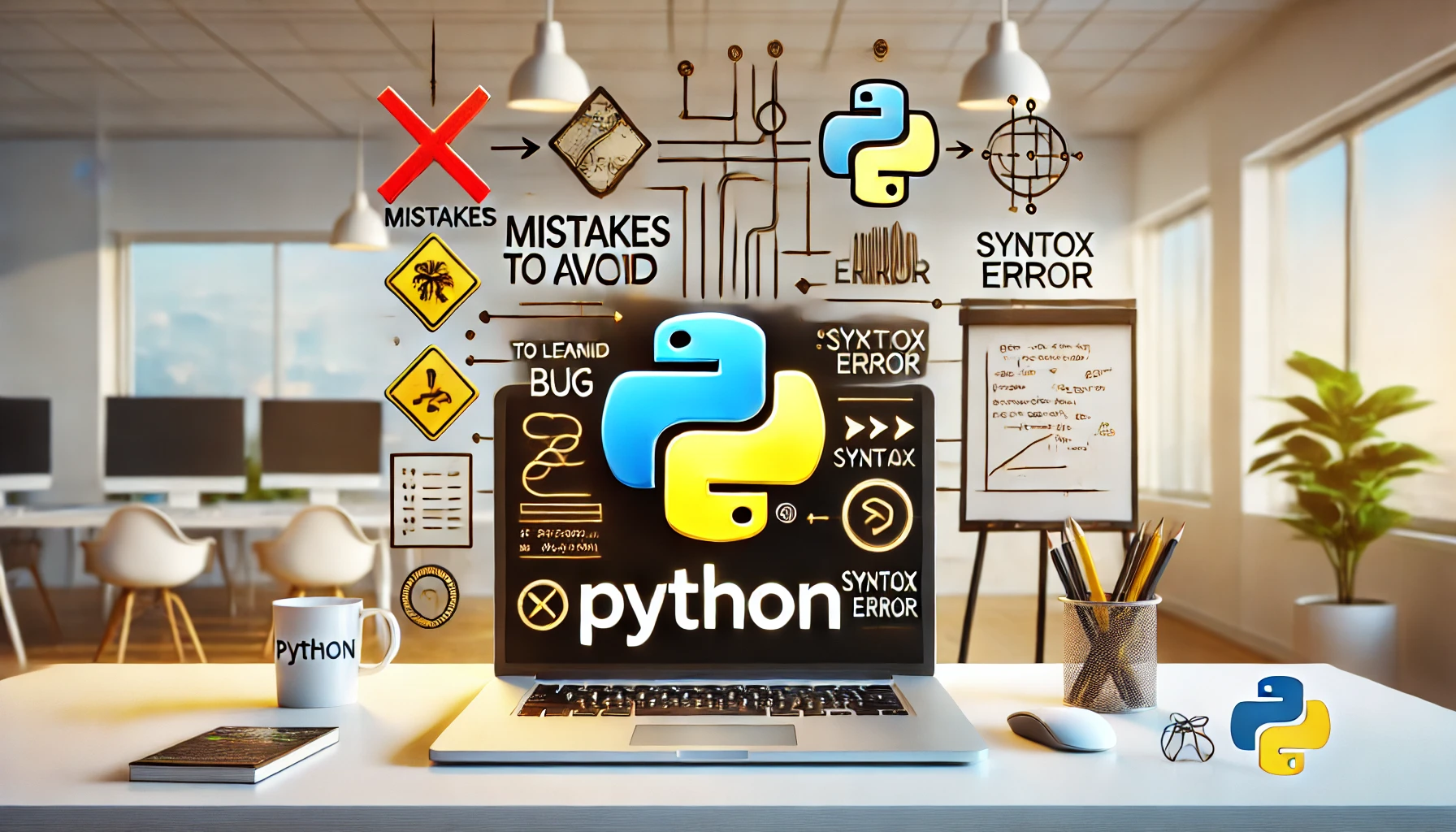When learning Python, it’s common to make mistakes along the way. However, being aware of potential pitfalls can help you avoid unnecessary setbacks and accelerate your learning process. Here are some common mistakes to avoid when learning Python.
- Skipping the Basics: Python has a relatively simple syntax and is known for its readability. However, it’s crucial not to rush through the fundamentals. Take the time to understand concepts like data types, variables, control flow, functions, and object-oriented programming. A strong foundation will make advanced topics easier to grasp.
- Not Practicing Enough: Learning Python requires hands-on practice. Merely reading tutorials or watching videos is not enough. Write code regularly, work on small projects, and solve coding challenges. The more you practice, the more comfortable and proficient you will become.
- Ignoring PEP 8 Guidelines: PEP 8 is the official style guide for Python code. Ignoring or neglecting its guidelines can lead to code that is hard to read and maintain. Familiarize yourself with PEP 8 and adopt its conventions early on. Consistent and well-formatted code is not only easier to understand but also encourages collaboration with other developers.
- Not Using Virtual Environments: Python supports virtual environments, which allow you to isolate project dependencies and versions. Failing to use virtual environments can lead to conflicts between packages and versions, making it challenging to manage your projects effectively. Utilize virtual environments, such as virtualenv or venv, to maintain a clean and organized development environment.
- Not Understanding Python’s Indentation: Python uses indentation to define code blocks instead of traditional braces or brackets. Failing to follow correct indentation can result in syntax errors and unexpected program behavior. Pay close attention to indentation rules, as they are essential for Python’s readability and correct execution.
- Not Handling Exceptions Properly: Python has robust exception handling mechanisms that allow you to handle and recover from errors gracefully. Neglecting proper exception handling can lead to program crashes and obscure error messages. Always use try-except blocks to catch and handle exceptions, providing informative error messages and fallback strategies where necessary.
- Using Outdated or Incompatible Packages: Python has a vast ecosystem of third-party packages and libraries. However, using outdated or incompatible packages can cause compatibility issues and security vulnerabilities. Keep your packages up to date and verify compatibility between different versions. Use package managers like pip and virtual environments to manage dependencies effectively.
- Not Embracing Pythonic Idioms: Python has its own set of idioms and best practices, often referred to as “Pythonic” code. Failing to embrace these idioms can result in less efficient, convoluted, or non-idiomatic code. Read and study Python code written by experienced developers, contribute to open-source projects, and strive to write code that aligns with Python’s philosophy.
- Lack of Documentation and Comments: Neglecting to document your code or include comments can hinder collaboration and make code maintenance challenging. Always provide clear and concise documentation for your functions, classes, and modules. Additionally, use comments to explain complex sections of your code, making it easier for others (and yourself) to understand its purpose and functionality.
- Not Seeking Help and Engaging in the Community: Python has a large and supportive community of developers. Don’t hesitate to ask questions, participate in forums, and seek help when encountering challenges. Engaging with the Python community can provide valuable insights, learning resources, and guidance to enhance your Python skills.
By being mindful of these common mistakes and actively working to avoid them, you can accelerate your Python learning journey and become a more proficient and effective Python developer. Remember, learning Python is a continuous process, and making mistakes is part of the learning experience. Embrace them as opportunities for growth and improvement.
👉 Hire dedicated Python developers here.


